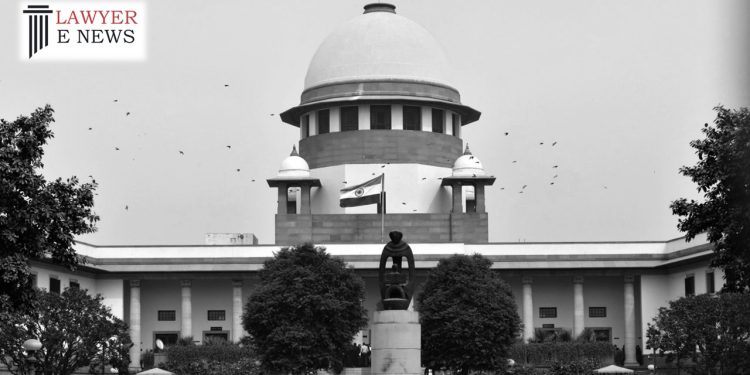Non-tribals have the right to settle and vote in Scheduled Areas, rules Supreme Court

The Supreme Court of India has held that non-tribals have the right to settle and vote in Scheduled Areas. A Constitution Bench comprising of Justices AK Sikri, NV Ramana, DY Chandrachud, Ashok Bhushan and UU Lalit made the ruling while hearing an appeal against an Orissa High Court order which had dismissed a plea challenging the validity of land acquisition in Scheduled Areas by non-tribals.
The Bench held that the power of the Governor of a state under Clause 5 of the Fifth Schedule of the Constitution is restricted to directing that a particular law will not apply to the Scheduled Area or it will apply with such modifications as may be specified in the notification issued under sub-clause (1) of Clause 5 of the Fifth Schedule or while making Regulations in terms of sub-clause (2) of Clause 5 of the Fifth Schedule.
The ruling comes after the Orissa government in 2003 passed a law to repeal the 1956 Orissa Scheduled Areas Transfer of Immovable Property (by Scheduled Tribes) Regulations, 1956. The law allowed for transfer of tribal land to non-tribals, and was challenged by tribal organisations in the state.
The Constitution Bench observed that the power of the Governor of a state is pari passu with the legislative power of Parliament and the state, and that the legislative power can be exercised by Parliament or the state subject to the provisions of Part III of the Constitution. The Bench further held that the power of the Governor does not supersede the fundamental rights under Part III of the Constitution of India, and that it has to be exercised subject to Part III and other provisions of the Constitution.
The Bench also rejected the argument that the Fifth Schedule of the Constitution is a law made by the Parliament, and that even if it were a law, it does not put any constraints on the exercise of the Fundamental Rights under Article 19(1) of the Constitution of India. The Bench held that non-tribals have the right to vote in Scheduled Areas, as the 1950 Act is applicable to the Scheduled Area and any person eligible to vote who is ordinarily residing in the Scheduled Area has a right to vote, even if he or she is a non-tribal.
The Bench further held that as regards providing reservation for all the Lok Sabha and the State Legislative constituencies in a Scheduled Area, reservation is required to be made in terms of Articles 330 and 332 of the Constitution of India. These provisions do not provide that all the constituencies in the Scheduled Areas shall be reserved for Scheduled Tribes. Appeal Dismissed.
D.D-10.May.2023
Adivasis for Social and Human Rights Action VS Union of India & Ors.





